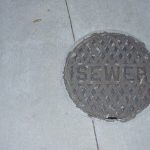Plumbing Maintenance Tips
Difficulties with plumbing can happen at any time, in any home, anywhere. While some issues can be unavoidable, because of wear and tear on plumbing components, many can be prevented with a little care and maintenance. If you follow these plumbing maintenance tips, you can keep your fixtures in good condition.
Don’t Throw Just Anything Down the Drain
Many drain problems can be traced back to an obstruction. These obstructions can be minimized if you are conscious of what you are putting down the drain. You should use a drain screen to prevent food debris, hair, fiber and other items from going down the drain. Never pour even the smallest amounts of fat or oil into your kitchen sink, as it can solidify, blocking the pipe. You should also be conscious of what food scraps are put into your waste disposal. Pasta and other starchy foods can congeal in the drain, creating an obstruction.
Only Flush Tissue Paper down your Toilet
Tissue paper is especially designed to dissolve quickly and apart from human waste, should be the only thing you flush. Many people assume that paper products including baby wipes, feminine hygiene products and diapers are safe to flush, but these items simply get water logged and can become an obstruction in the drain.
Address Slow Draining Water Immediately
If the water in your sink or bathtub has begun to drain more slowly, it is an indication that a blockage or clog has started to form. Avoid waiting for the clog to develop and totally block the pipe, by addressing this issue immediately. Smaller clogs can usually be cleared using a plunger or drain snake. Once the clog becomes large enough to block the pipe, it is unlikely that even harsh chemical cleaners (which are not recommended to begin with) will be sufficient, so you will need to call in a plumber.
Repair any Leaks Immediately
Any time you find traces of moisture in an area that should be completely dry, you need to immediately trace any leak and have it repaired by a professional. A small leak will not resolve itself, but is likely to develop into a bigger and potentially expensive problem in the future.
Do Not Plug Overflow Drains
Many homeowners plug their overflow drain on sinks or bathtubs to increase the capacity. Although reclining in a super deep bath is relaxing, your stress levels will increase if you prevent the overflow drain from working correctly. The overflow is specifically designed to drain off any excess water and prevent it from spilling out onto the floor. Therefore, your overflow must stay open at all times.
Use Overflow Trays
When you are installing a washing machine, dishwasher or water heater, use an overflow tray. The tray will direct any overflow water into the drain, rather than all over your floor. A tray can also be useful to spot if there is a leak with your appliance, so you can have it repaired. If you live in an area prone to earthquakes like Southern California, secure the appliance to avoid it becoming dislodged.
Locate Your Shut Off
Finally, you should locate your main water shut off. This is essential for quickly turning off the water supply in case of an emergency. While you may still need assistance to repair the emergency flood issue, you can minimize water damage inside your home by knowing where to shut off your water while you wait for professional help.
By Giovanni Longo President Flood Brothers Plumbing
Giovanni Longo is a 3rd generation master plumber who has been practicing his craft and trade in the greater Los Angeles area for well over a decade and a half. A plumbing and hydraulics-engineering innovator, Giovanni’s particular world-class expertise focuses on dealing with challenging sewer system designs as well as resolving complex commercial and residential draining issues. As a certified Flood Mitigation expert, he is also well versed in a wide variety of water damage and remediation solutions.





